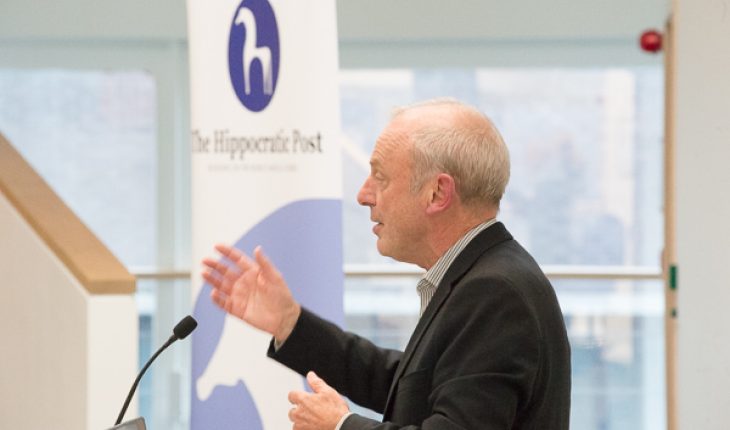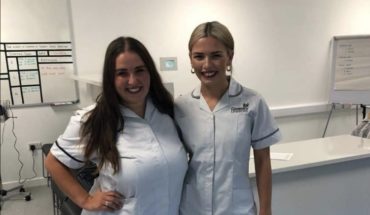One in every two people is going to get cancer in the UK so it’s a story that concerns every one of us. Journalists are so important because they interpret the facts and inform the wider public about cancer. It’s difficult sometimes for journalists to weigh up validity of evidence. For example, at the recent ASCO conference in Chicago, attended by 35,000 oncologists, there was a huge glut of press releases on a wide variety of topics – drug breakthroughs, clinical trials, new diagnostic techniques and equipment. Very often these press releases have no other purpose than to promote high-cost interventions created by drug companies.
Lots of articles were published about exciting new developments in cancer treatments, including the possibility that statins could reduce the risk of dying from breast cancer, and there were new drugs for treating prostate cancer, but there is widespread simplification in the media. Cancer is a very complex problem and it cannot be digested down into a few hundred words.
There are four areas of interest for the future of cancer care.
Treatment breakthroughs
These include immunotherapy, precise radiotherapy including Proton Beam radiotherapy which I am involved with, and new regimens to prevent drug resistance. When it comes to surgery, all eyes are on robotics and minimally invasive techniques. Increasingly, cancer surgery can be performed without any need to make an incision at all. Instead, the surgeon goes in through an orifice like the oesophagus or the anus. In future, patients will often be day cases and leave hospital on the same day as their procedure.
Psychosocial care
Cancer treatment is going to get better and more pleasant. There will be more emphasis on psychological counselling to help people deal with the trauma of their diagnosis and get on with their lives in a positive way. Relying on friends and neighbours for social support will become rare as communities fragment and fewer people rely on religion and close family.
How will we provide care?
At the moment, cancer care is usually given in large specialist hospitals. In my opinion, it will increasingly be done in smaller clinics in communities connected to a specialist centre for quality control.
How are we going to pay for it all?
The numbers of people being diagnosed with cancer is on the rise, and there are 40,000 new cases of breast cancer every year in the UK. Older drugs may cost very little – equivalent to a few pounds per month – but new treatments under patent can cost upwards of £100,000 a year per patient. If we grant these expensive new ‘wonder drugs’ to everyone which may only extend life by a few weeks or months, the NHS won’t be able to cope. How are we going to choose who gets these drugs? How do you put a value on a life? When I managed the cancer drugs budget for West London in the nineties, the most expensive drug available cost £10,000 a year. Now, a new melanoma drug costs £120,000 per year.
What could make the situation better is the personalisation of cancer care. So that we would know who was likely to benefit and what would simply be an expensive dead end. Also, we need to ensure that we are not forced into making expensive, and fruitless, choices by vested interests who just want to make huge profits out of people’s understandable fears. The media can play a role in that by properly evaluating press releases and evidence and not doing the marketing job for big Pharma.
Earlier this month, Professor Karol Sikora, world renowned cancer specialist and Dean at the University of Buckingham Medical School, spoke at the Hippocratic Post Awards for Student Medical Journalism at City, University of London, on the subject of Cancer and the Media. This is a summation of his speech.
- Cancer backlog will become a national emergency - 4th June 2020
- Cancer –a story that concerns every one of us - 20th June 2017
- Restrictive diets - 15th May 2016







Given that 50% of patients have tried some sort of non-standard therapy and that those who do tend to be female white, better paid and better educated and that many report considerable benefit, isn’t most oncologist’s hostility towards these other approaches sidelining a valuable battalion in the war against cancer? The issue is nearly always dismissed with reference to evidence – when they are supported by proper evidence as standard treatments are then they will become standard too. Two points in response: First the idea that cancer treatments are firmly evidence based is PR rather than reality. One striking recent… Read more »